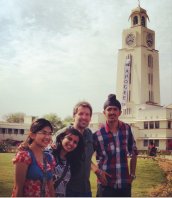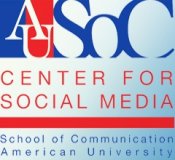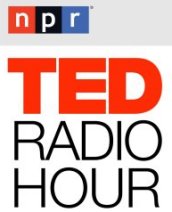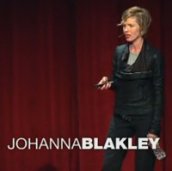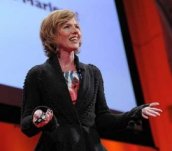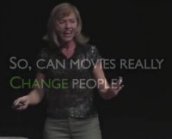Johanna Blakley
Media | Entertainment | FashionArchive for activism
TED 2013: It’s the Data, Stupid
I had the tremendous pleasure of attending TED 2013 and, as always, I felt compelled to figure out the overarching themes of this vastly interdisciplinary conference. The T, E and D stand for Technology, Entertainment and Design, but, as anyone who toils in these fields knows, that kinda covers everything under the sun. You have to wonder, how on earth do the TED curators figure out what fits and what doesn’t?
I wrote a blog about TED 2011 and, rereading it today, I see that much of the same soul searching that was put on display then is still very much at play now. I had argued then that several key talks had addressed the necessity of, on the one hand, recognizing and celebrating your own unique and often imperfect perspective on the world, and accepting the fact that not only are other perspectives out there, but they are probably more valid than you would care to think.
For TED 2013, I saw a similar interest in trying to encourage the audience (and the millions of viewers who will devour these videos online) to want to know what they don’t know. If I had to propose a title, it might be
It’s the Data, Stupid
Big data was an obvious theme throughout the conference, handled well in two talks by co-authors Erik Brynjolfsson and Andy McAffee (who also gamely appeared in an intellectual lucha libre-inspired “cage fight” at a nearby bar). Brynjolfsson mentioned the AI winter we’ve long weathered, in which advances that several futurists had expected just didn’t happen. But Brynjolfsson argued that we’re entering a renaissance for artificial intelligence because of the amazing repositories of big data that we now have access to and the powerful tools that are being developed to make sense of them.
Sergey Brin attended the conference and he has long been a proponent of turning academic science on its head: why start from a hypothesis when you can just sort through unfathomable piles of data and see what comes out? It’s the Google-ification of scientific research, and, as you can imagine, that makes a lot of people really nervous.
Why? Because we’re ceding responsibility and thought to computers? Certainly that’s a factor. But it’s also incredibly difficult to devote your life to performing research that may demonstrate that you’ve been wrong – perhaps really wrong – about everything you thought you knew.
Bono came back to the TED stage and made a passionate plea for “factivism” – action based on a clear-eyed view of what the data is telling us, not what stereotypes and “common sense” dictate. Leyla Acaroglu performed this task beautifully, shedding light on the troubling misconceptions we have about how to be proper conservationists and environmentalists (paper or plastic? Guess what? The best choice is PLASTIC).
Bill Gates also attended the conference and, although he didn’t speak on stage, his message – recently delivered in the Wall Street Journal — that accurate measurement is the prerequisite for progress was, for me, the quiet drumbeat behind the entire conference.
Neuroscientist Stuart Firestein gave a perfectly delicious talk on the role that ignorance plays in scientific praxis (he actually teaches a class on it!) and he highlighted something that many people I spoke to at the conference mentioned again and again: the adage from geneticists that “you always get what you screen for.” Eli Pariser’s “filter bubble,” anyone?
After all, how do you make the smarty-pants people who attend TED even smarter? You chastise them to think even better, to move beyond thinking by analogy (as Elon Musk proposed) and convince them that they probably aren’t asking enough questions, and the questions they’re asking are probably so deeply imbued with their own personal biases that they might not be able to hear an answer that doesn’t jibe with their treasured “gut feeling.” And then, after they get all depressed, you tell them they can read TED Fellow Negin Farsad’s hilarious (and f-bomb heavy) summary of the conference. They’ll feel a little better after that.






